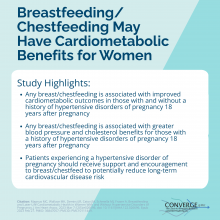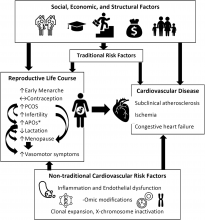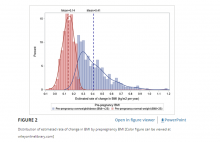Dr. Catov's work around pregnant individuals at risk for high sedentary behavior and adverse pregnancy outcomes points to a sedentary behavior reduction intervention being feasible, acceptable, and may offer a viable alternative.
Catov
A novel technique to estimate intravillous fetal vasculature on routine placenta histologic sections
Dr. Janet Catov and her team piloted a novel continuous villous vascular estimation method using immunohistochemistry and a digital pixel count algorithm.
Blood Pressure Trajectories Through the First Year Postpartum in Overweight or Obese Individuals Following a Hypertensive Disorder of Pregnancy
Dr. Janey Catov and her team compared pregnancy and postpartum blood pressure (BP) trajectories among individuals with hypertensive disorders of pregnancy who developed persistent hypertension at 1-year postpartum compared with individuals with normalization of BP.
Read the rest of their paper here: https://pubmed.ncbi.nlm.nih.gov/38073563/
Placental syndromes and long-term risk of hypertension
Dr. Janet Catov's team reviewed the relationship between blood pressure and maternal health in pregnancy. They concluded that there is a pressing need for studies with a range of detailed measures of cardiac and vascular structure and function taken before, during, and after pregnancy. This will help inform effective precision medicine prevention and treatment of both placental syndromes and chronic hypertension in women.
Read more about Dr. Catov's findings here: https://pubmed.ncbi.nlm.nih.gov/36702879/
Characteristics of Premature Myocardial Infarction Among Women With Prior Adverse Pregnancy Outcomes
We are highlighting the work of Dr. Janet Catov around characteristics of premature myocardial infarction among women with prior adverse pregnancy outcomes. https://pubmed.ncbi.nlm.nih.gov/37694271/
Prepregnancy obesity and risk of placental inflammation at term: a selection bias analysis
Dr. Janet Catov and her team examined the association between prepregnancy obesity (risk factor for inflammation) and histologic placental inflammation (correlated with impaired infant neurodevelopment) and how selection bias may influence the association.
Their findings point to obesity contributing to placental inflammation: https://pubmed.ncbi.nlm.nih.gov/37302673/
Breastfeeding/ Chestfeeding May Have Cardiometabolic Benefits for Women
Faculty members Dr. Jill Demirci and Dr. Janet Catov examined whether breastfeeding/chestfeeding duration or exclusivity are associated with long‐term cardiometabolic health, and whether this relationship differs by hypertensive disorders of pregnancy (HDP) status
Read more about their findings here: https://pubmed.ncbi.nlm.nih.gov/36847057/
Women's Reproductive Milestones and Cardiovascular Disease Risk: A Review of Reports and Opportunities From the CARDIA Study
In this review article, Dr. Janet Catov and her team describe CARDIA (Coronary Artery Risk Development in Young Adults) studies for each reproductive milestone (contraception, PCOS, pregnancy, GDM, preterm delivery, hypertensive disorders of #pregnancy, preeclampsia, gestational hypertension, lactation, breast/chest feeding, menopause, reproductive aging, infertility, and hot flashes).
Read more here : https://pubmed.ncbi.nlm.nih.gov/36847077/
A novel approach to classifying early and late preterm births
This World Prematurity Day, we are highlighting the work of Dr. Catov, who classified early and late preterm births by pathophysiology and risk factors. Findings show that:
- Half of late preterm births had no evident predominant placental pathology
- -Prepregnancy BMI doubled the probability of maternal vascular malperfusion in early preterm births
- Small-for-gestational-age & severe neonatal morbidity was most prevalent among deliveries w/ placental malperfusion
Pre-Pregnancy Weight Change Associated with High Gestational Weight Gain
Weight gain before pregnancy is associated with higher gestational weight gain during pregnancy. Assessment of pre-pregnancy weight changes by Dr. Janet Catov and her team may identify those at risk for high gestational weight gain. Results align with the accumulating evidence that pre-pregnancy health contributes to optimal pregnancy outcomes and that it can potentially avert the long-term maternal and child health consequences of high gestational weight gain.











